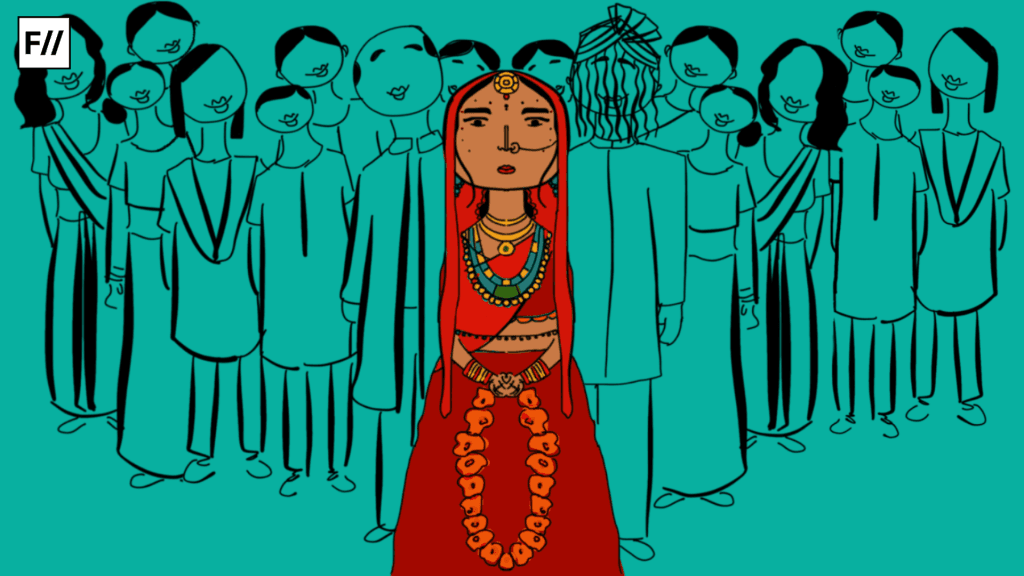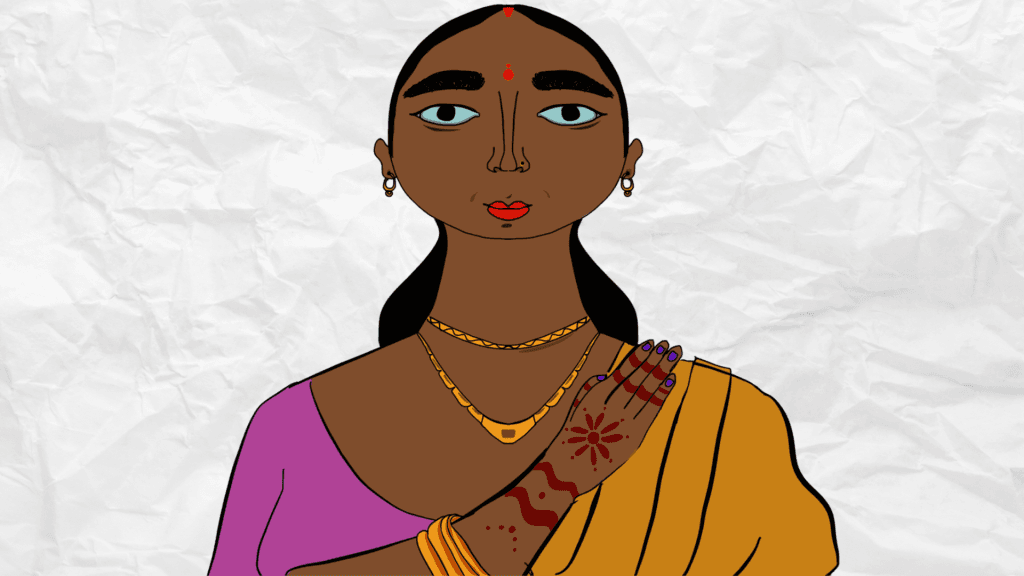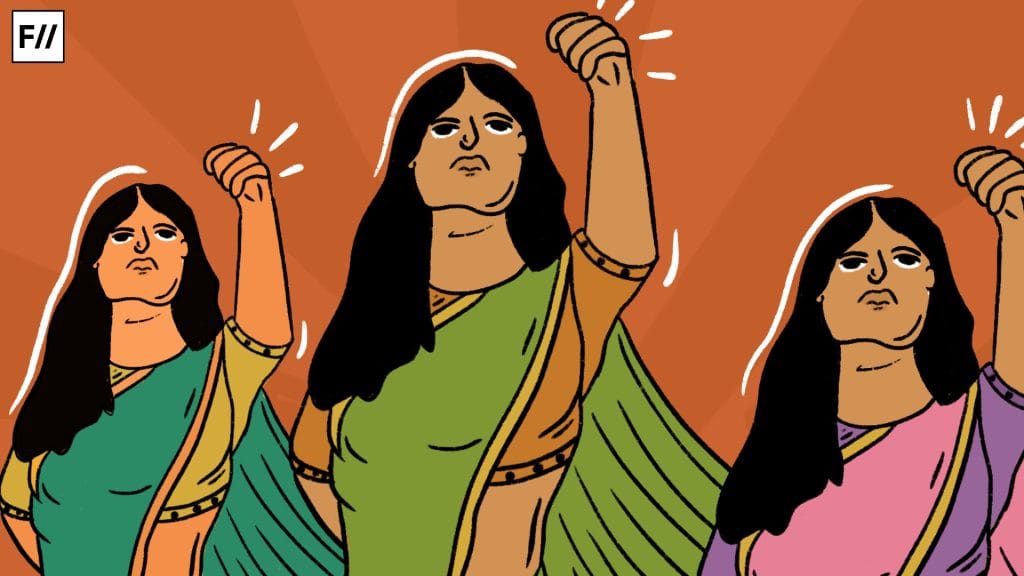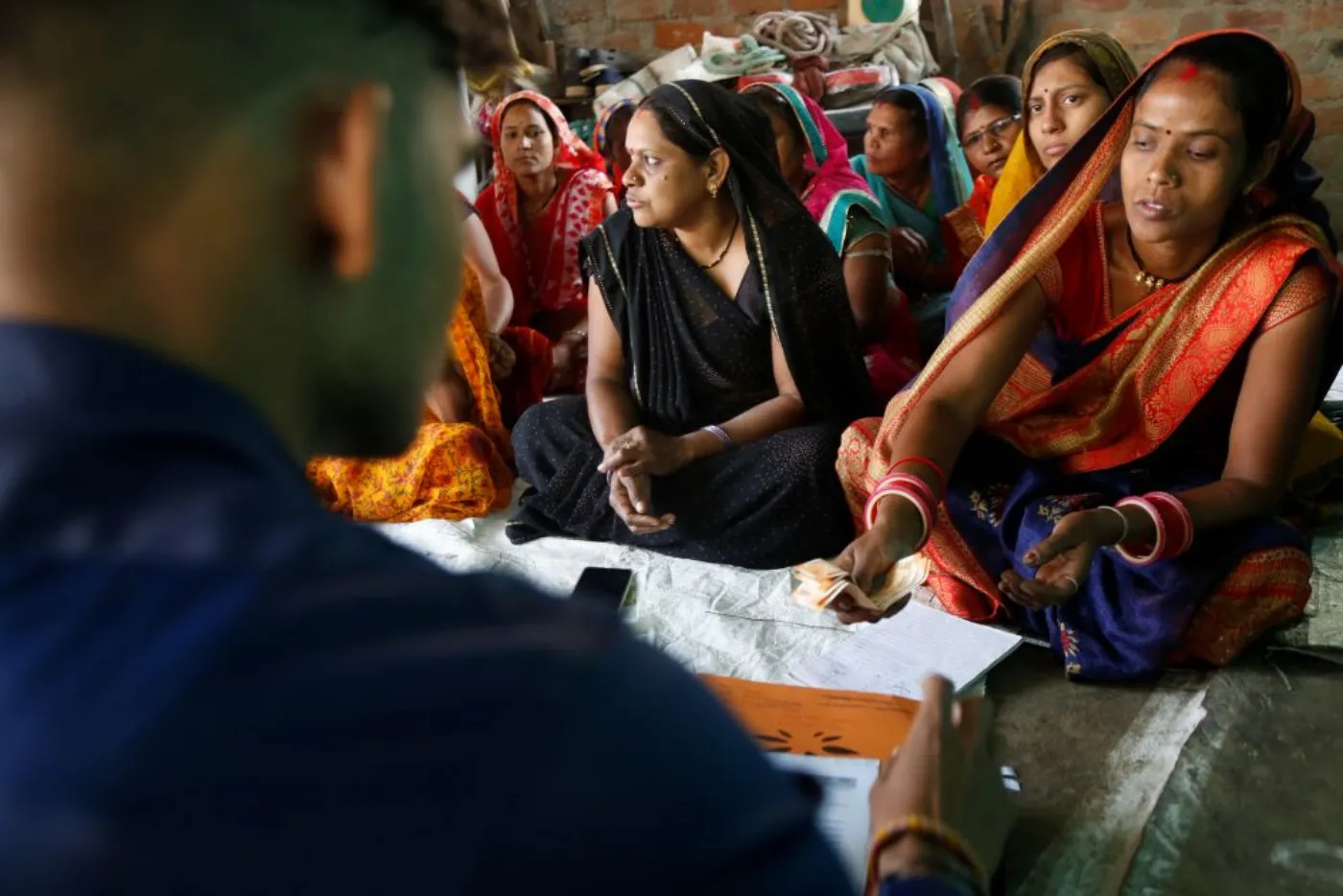Hindu Women have had minimal rights over ancestral land property. They have not enjoyed equal rights to land on ancestral property like their male counterparts since ancient times. It is because of the traditional practice of the Stridhan in Indian society. This tradition has affected women’s share in land inheritance. Legislation like the Hindu Succession Amendment Act (2005), has set a new rule of equality, which ensures that women must enjoy the same right of inheritance as men do, especially in the case of land inheritance. It mentions that sexual discrimination in Hindu succession rules is discontinued. Under section 6 of the Hindu Succession (Amendment) Act (2005), daughters are entitled to have equal rights on the ancestral properties as their male counterparts.
According to the UNFPA analytical paper “Asset Ownership by Women in India: Insights from NFHS Data” owning land alone and jointly by women (age 15- 49) is only 8.3 per cent and 23.4 per cent, respectively. The ancient Dharmshastras (Hindu Law Book) like Manusmriti, writes, “Her Father protects her in childhood, her husband protects her in youth and her sons protect her in old age, a woman is never fit for independence.” This depicts a woman is never an independent individual, she is always under the shadow of a man, and she doesn’t need to own property.
The data from National Family Health Survey-5 (NFHS-5) shows that more men as compared to women own property. However, women are not 100 per cent excluded from inheriting movable or immovable property from ancestral and marital families, but their proportion of the share in the property was far less than that of their male counterparts.
What is the concept of Stridhan and its relevance in Indian society?
Stridhan is a Sanskrit term that combines two words that are Stri, meaning women, and Dhan, meaning fortune or property, so it means women’s property or fortune. It’s also spelled as Stridhana, Stridhanam, Streedhana, Istridhan, etc. It includes mainly marriage gifts such as clothes, jewellery, ornaments, utensils, cattle, and in some rare cases, land properties. In Stridhan both Immoveable and moveable property are included. This concept of Stridhan has been relevant in Indian society since ancient times.

The ancient Dharmshastra (Hindu Law book) Manusmriti first used the term Stridhan to denote types of property that can be owned by women alone. Other ancient texts like Smritis, Puranas, etc. talk about the Stridhan but no one strictly mentions the inheritance property rights of women. A woman was never the absolute owner of her Stridhan, because, as mentioned in Manusmriti a wife along with her property belongs to her husband.
How does Stridhan affect the women’s right to land inheritance?
According to the Asian Development Bank 2018 report, two major reasons for the glaring unequal distribution of land to Indian women are personal religious law governing ownership of land, which is under state jurisdiction, not governed by the constitution under a uniform law thus inheritance rights tend to discriminate against women. Second, land ownership by women in India’s patriarchal societies is prevented by the deep-rooted cultural ethos. Cultural ethos like in the context of Hindu women in society, people are traditionally bound by this Stridhan concept, which is the belief that women have only rights on family’s gifts like gold ornaments, jewellery, clothes, etc, and not on their land like her brothers.
In Indian society, daughters are famously called “Paraya Dhan” meaning the wealth of someone else i.e. their husband and in-laws’. All these traditional and cultural beliefs and the great influence of Stridhan affected women’s right to land inheritance. Parents often do not see the need to transfer property rights to their daughters through inheritance. The societal practice in Hindu society considers that the Stridhan is already provided to the daughter, hence she has no longer any claim of inheritance.
Why do women refrain from claiming their inheritance property?
The Hindu Succession (Amendment) Act (2005) (HSAA) was amended to protect women’s rights to an equal share in ancestral property, including land. This legislative reform guaranteed equal rights to daughters and sons. The bias against women in the cultural and social ethos has restricted these guarantees of equal land rights for women.

The amendment of Section 6 to grant daughters the same birthright as boys was the most significant alteration brought about by the Hindu Succession. By granting the offspring of a deceased daughter the same rights of representation as the children of a deceased son, it also levelled equality between the male and female lines of lineage. But here the question arises of why women refrain from claiming their inheritance land property rights. There are many cultural and traditional reasons too, but one of the reasons has been continuous discrimination against daughter since their childhood. They are discriminated against because of their gender and the patriarchal belief system of the family and society. They are considered weak and unable to maintain any property such as land, home, etc on their own. These discriminations resulted in their socio-economic backwardness, which further weakened their claim on their ancestral land or house property.
Many traditional and cultural practices also prevent them from claiming those rights such as, brother and sister relationships strongly bounded by festivals like Rakshabandhan, Bhaidooj, etc. Women restrict themselves to Stridhan, which continues even after the marriage in the form of gifts on several distinguished occasions. All these traditional boundaries refrain women from claiming inheritance property even in the case of them being aware of their legal rights.
As the World Bank 2012 report highlights while developing countries continue to improve economic opportunities for women, inheritance laws remain strongly biased against women in many societies. When the distribution of inherited wealth is highly unequal, the effect of this disparity on economic inequality is of considerable interest. Parental bequests of material wealth and human capital investments represent central forms of intergenerational transfers that affect long-term development in far-reaching ways.
How can women be empowered and become independent?
Inheritance is the primary way to receive land in India. Equal land rights for women are also a key target of Goal 5 on gender equality in the United Nation’s Sustainable Development Goals (SDGs). Because, through this gender equality comes into society, and women become economically independent without depending on their husbands, fathers, and brothers and will be able to make their own decisions and equal participation in every sphere.

According to the United Nation’s Sustainable Development Goals, “Gender equality is not only a fundamental human right but a necessary foundation for a peaceful, prosperous and sustainable world.” This 2005 legislative reform is one of the ways to achieve equal rights for daughters on their father’s overall property, which may ensure their safety and confidence. It can eventually decrease the cases of crime against women, such as domestic violence, sexual exploitation, inequality, etc.
Women in India face various violence from their husbands and their family members, one of the reasons being economic dependency on their husbands or not able to give ample dowry. Increasing cases of dowry crime in the country have increased the importance of equal property rights for women. The ownership of land and property will not improve their confidence in employing income, but it will play a pivotal role in affording them a meaningful voice in household decision-making, both domestic and economic.
The absence of such rights often results in a diminished status for women within both familial and societal structures. The legislative reform of 2005 is the panacea to several issues for women. Modern society should accept this reform for the benefit of their daughter. It will overall ensure a better future for both the country and the women.
About the author(s)
She has completed her Master’s degree in History from Lady Shri Ram
College for Women, University of Delhi with a specialisation in ancient history. She has a keen
interest in ancient texts, and with their help, she wants to explore women's role and status in
ancient households and society. Therefore, her interest lies in ancient literature, Gender,
Caste, and society. With all these ancient texts, like Brahmanical, Buddhist, and Jain, she wants
to understand the actual rights and status of women in ancient households, such as being a wife,
daughter, and others. What was their role in ancient civilization and culture, and their
unspoken contribution which these texts did not mention properly.







Another great article. Keep going Rakhi ji 😊😊